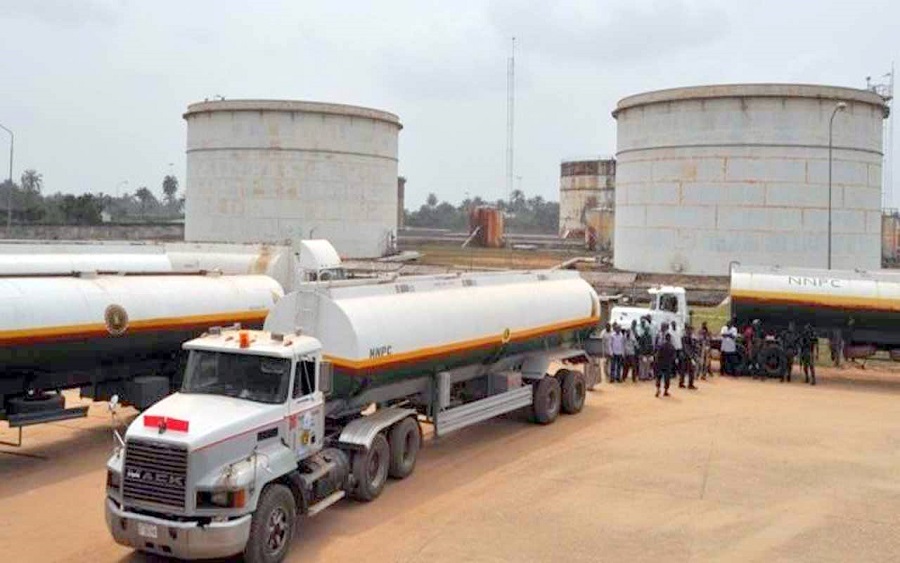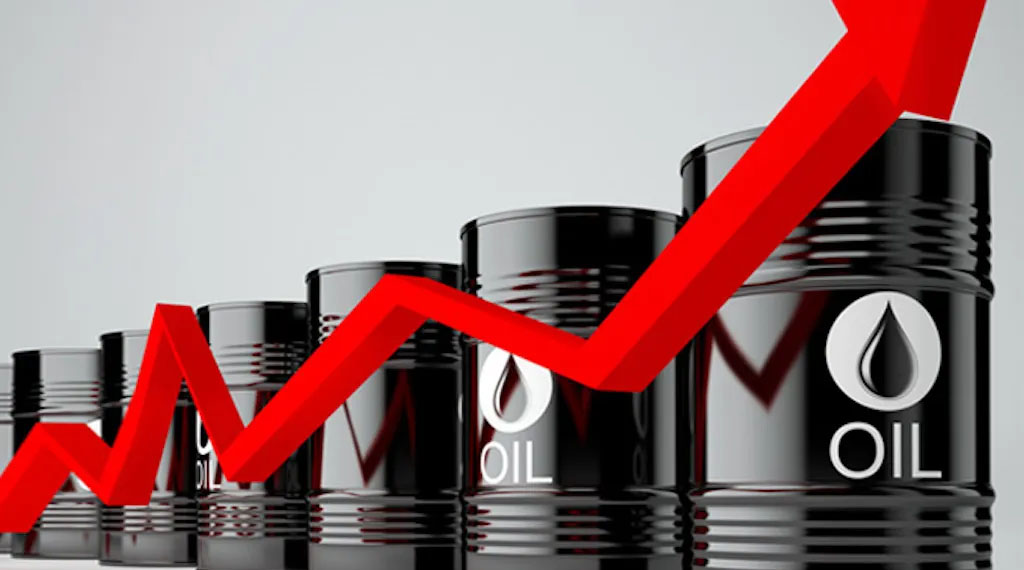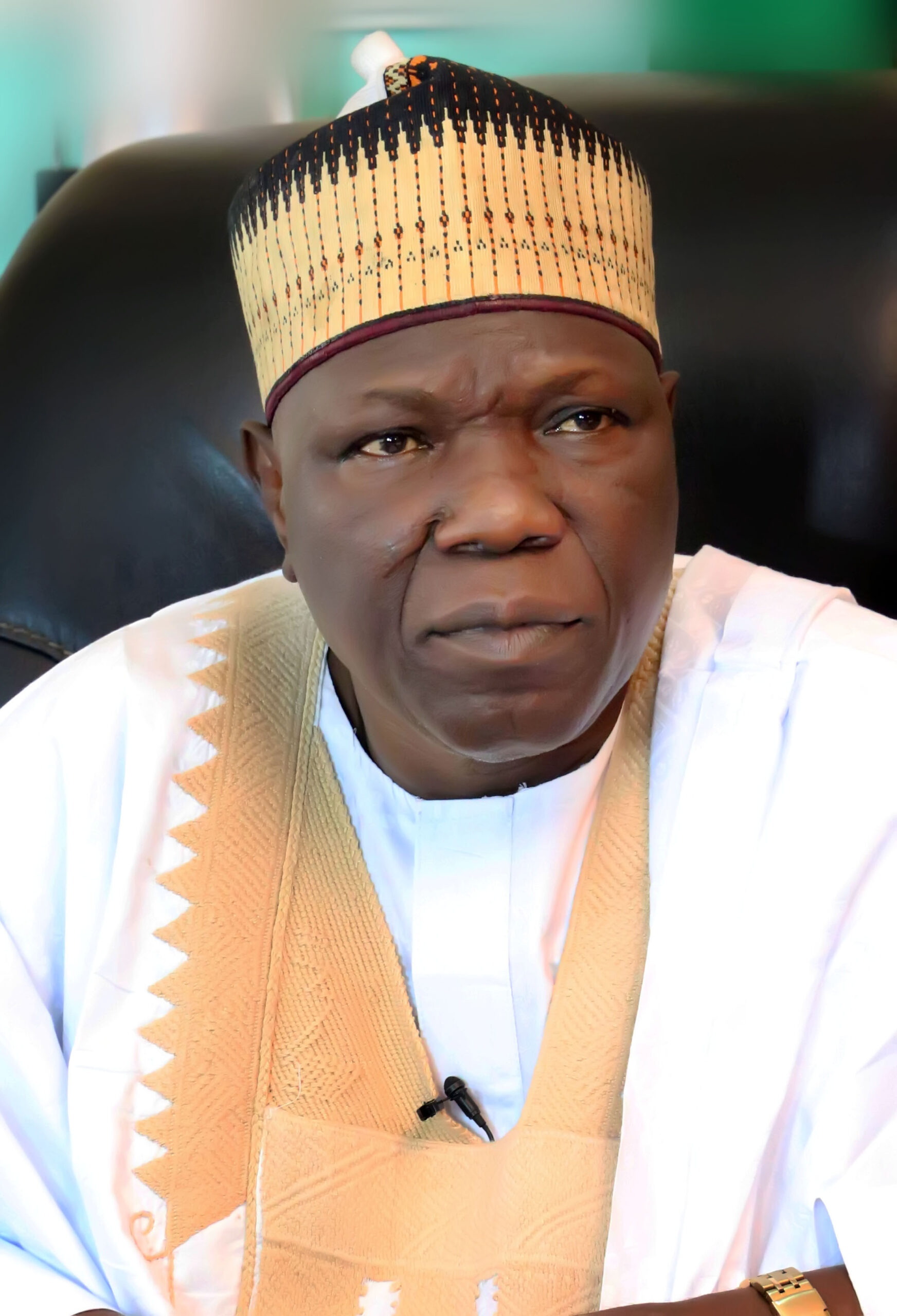Business
Petrol landing cost climbs to ₦186 as oil hits $64

Landing cost of imported Premium Motor Spirit (PMS) popularly known as petrol has risen to N186.33 per litre.
The sharp increase is occasioned by the rising price of crude oil at the international market, currently at $64 per barrel.
Already, the Federal Government has hinted of possible increase in the pump price of petrol at the filling stations saying there is no provision for fuel subsidy in the budget,
But the labour has kicked against any fresh increase in petrol price, which they note that Nigerians cannot absorb in view of the biting economic crunch.
The Minister of Labour and Employment said a decision on the petrol price would be taken a meeting between the FG and state governors on Thursday.
The landing cost of petrol rose to N180 per litre on February 5 from N158 .53 per litre on January 7.
Crude oil price accounts for a large chunk of the final cost of petrol, and the deregulation of petrol price by the Federal Government last year means that the pump price of the product will reflect changes in the international oil market.
The pricing template of the Petroleum Products Pricing Regulatory Agency showed that the landing cost of petrol rose to N186.33 per litre on February 16.
The latest rise also indicates that the pump price of the product would be N209.33 per litre.
The Nigerian National Petroleum Corporation, which has been the sole importer of petrol into the country in recent years, is still being relied upon by marketers for the supply of the product despite the deregulation of the downstream petroleum sector.
Oil marketers said recently that they were ready to resume importation of petrol if the foreign exchange was made available to them at a competitive rate.
“The discussion we should be having today is how best to maximise the benefits of the removal of price controls and subsidies while minimising the adverse effects of this action on our citizens,” Chairman, Major Oil Marketers Association of Nigeria, Mr Adetunji Oyebanji, said at a virtual press briefing.
The international oil benchmark, Brent crude, closed at $ 63.96 per barrel on February 16, up from $59.34 per barrel on February 5.
Brent crude, against which Nigeria’s oil is priced, rose by to $64.58 per barrel as of 6.08pm Nigerian time on Monday.
Other cost elements that make up the landing cost are freight (N10. 29), lightering expenses (N4.57), insurance cost (N0.25 ), Nigerian Ports Authority charge (N2.38), Nigerian Maritime Administration and Safety Agency charge (N0.23), jetty throughput charge (N1.61 ), storage charge (N2.58), and financing (N1.33).
The freight cost rose to $35.41 per MT (N10.29 per litre) last Wednesday from $30.04 per MT ( N8.74 per litre ) on February 5 .
The pump price is the sum of the landing cost, wholesale margin and the distribution margins. The wholesale margin is N4.03 while the distribution margins comprise transporters allowance ( N3 . 89 ), retailer ( N6 . 19 ), bridging fund ( N7 . 51 ), marine transport average (N 0 .15 ) , and admin charge (N1 . 23 ).
Apart from the changes in global crude oil prices , the exchange rate of naira to the dollar also affects the cost of imported petrol .
The cost of petrol would be higher if the 410/ $ 1 rate at which the naira closed on Monday at the Investors’ and Exporters’ Foreign Exchange Window was used. The naira closed at 480 / $ 1 at the parallel market.
Business
Breaking: Nigeria’s inflation rises to 33.2%, says NBS

Breaking: Nigeria’s inflation rises to 33.2%, says NBS
The National Bureau of Statistics (NBS) says the nation’s inflation rate rose to 33.2 per cent for the month of March 2024.
This represents a 1.5 per cent increase over 32.7 per cent recorded in February 2024.
The NBS disclosed this in a new report released on Monday.
It explained that the rise was primarily due to higher costs of food, beverages, energy, and housing. Compared to February 2024, the inflation rate in March increased at a slower pace, with food inflation reaching 40.01% year-on-year.
NBS attributed the spike in food prices to the rising costs of items like garri, millet, yam tubers, and others. On a month-on-month basis, food inflation slightly decreased to 3.62% in March 2024.
Urban inflation also increased to 35.18% year-on-year in March 2024, while rural inflation stood at 31.45%.
Core inflation, which excludes volatile agricultural products and energy, was 25.90% year-on-year in March 2024.
Overall, the rising cost of living in Nigeria is evident in the significant increase in inflation rates across different categories.
It is crucial for policymakers to address these challenges to alleviate the financial burden on the population.
Business
Nigeria’s oil production drops by 2.8 million barrels in one month

Nigeria’s oil production drops by 2.8 million barrels in one month
The Nigeria Upstream Petroleum Regulatory Commission (NUPRC) has confirmed the data released by the Organisation of Petroleum Exporting Countries (OPEC), indicating a consecutive decline in Nigeria’s oil production for the second month in a row.
According to NUPRC reports, crude drilling operations in March saw a notable decrease, with production dropping from 1.42 million barrels per day (bpd) in January to 1.23 million bpd in March, marking a significant loss of approximately 2.8 million barrels over the month.
Minister of State for Petroleum Resources (Oil), Senator Heineken Lokpobiri, acknowledged the declining trend, attributing it to issues on the Trans Niger Pipeline (TNP) and maintenance activities by oil companies in Nigeria during the period.
READ ALSO:
- Army kills terrorists invading Kaduna with arms, ammunition
- El-Rufai’s Ally, Aisha, arrested over Facebook post against Gov Sani
- FG begs workers as electricity union insists on strike over tariff hike
However, beyond crude oil, condensate production, which typically falls outside OPEC’s quota calculation, also experienced a decline in March, further exacerbating Nigeria’s overall production slump.
Auto
Ore extols ex-NURTW President Yasin’s virtues at 68

Ore extols ex-NURTW President Yasin’s virtues at 68
Acting President of the National Union of Road Transport Workers (NURTW), Alhaji Aliyu Issa Ore, has described the former president of the union, Alhaji Najeem Usman Yasin, as a trade unionist per excellence with worthy administrative experience.
He stated this in his goodwill message on the 68th birthday of Alhaji Yasin
Ore, a former chairman of the Kwara State council of the union, said the achievements he recorded while in Kwara were as a result of quality advice and guidance from Yasin.
Ore explained that Yasin’s tenure as president of the union witnessed tremendous development and growth of the NURTW.
“His tenure as president of the union recorded first-class growth.
“He took the union to the global stage. For the first time, our union became a strong member of International Transport Federation (ITF).
“Apart from getting international recognition, he also built zonal council offices for all the zones. Before he came in, our zonal councils usually operated from rented apartment but his administration acquired land and built befitting zonal offices for all our zonal councils.
“Again, Alhaji Yasin ensured that the national headquarters of the union assisted many state councils to build their own councils secretariat. Through his guidance, most state councils now operate from their own state councils.”
He recalled the peace enjoyed by members of the union under Yasin, saying this ensured that the body had perfect transition arrangements devoid of thuggery and shedding of blood.
“Before he came into office, our election or change of leadership was usually bloody. But he put a system in place that put an end to thuggery and other violence in the union,” he said.
Ore also said Yasin’s tenure boosted the education of members and workers by ensuring that the union secured partnership with National Open University of Nigeria (NOUN) which enabled members to acquire university education.
“Members of staff also enjoyed opportunities to go for training and workshops to boost their knowledge,” Ore stated.
He prayed that Almighty Allah would continue to preserve him to witness more years in good health.

-

 metro6 days ago
metro6 days agoTribute: C.K George, Epitome of Courage, by Kunle Awobodu
-

 metro5 days ago
metro5 days agoTroops arrest ISWAP commander involved in Army General, 3 soldiers’ killing in Borno
-

 metro6 days ago
metro6 days agoBandit kingpin, Dangote, siblings killed in Katsina
-

 News6 days ago
News6 days agoBetta Edu threatens to sue BBC, alleges defamation
-

 News6 days ago
News6 days agoI never said Aiyedatiwa is Tinubu’s preferred candidate in Ondo – Interior Minister
-

 metro5 days ago
metro5 days agoJUST IN: Actor Junior Pope resuscitated after death scare
-

 News5 days ago
News5 days agoBREAKING: Ex-Abia gov, Ogbonnaya Onu, is dead
-

 metro6 days ago
metro6 days agoPolice arrest female kidnapper in Ebonyi, rescue six abducted children





















You must be logged in to post a comment Login